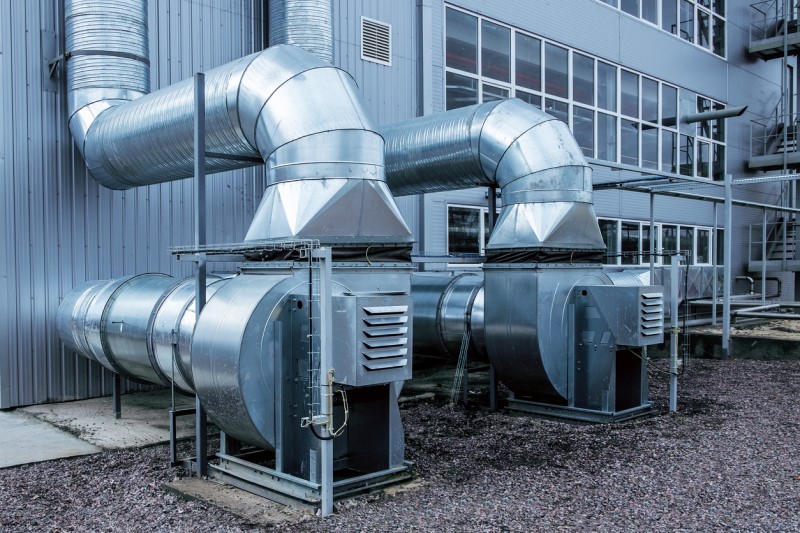Commercial HVAC 101: How Do Commercial HVAC Systems Work?
There are not many pieces of technology that improve our quality of life as much as modern HVAC systems. Maybe that is why there is enough demand for the services of HVAC contractors to generate more than $123 billion every year in the United States alone. The heating and air conditioning contractor market employs more than 659,000 people around the country.
So how do commercial HVAC systems work? Many businesses depend on their HVAC systems for decades without ever learning about how they function. Of course, this is about more than a simple curiosity. When you understand your HVAC system better, it will be easier for you to make the right choices as far as maintaining it.
The bigger your commercial HVAC system is, the more expensive it can be to make the wrong choices about how to take care of it. Read on to learn all about the most essential things to understand about commercial HVAC systems and how they work!
Different Types of Commercial HVAC Systems
Although we use the umbrella term of “commercial HVAC systems,” there are of course many different kinds of HVAC systems. There are some general principles that govern how HVAC systems work. However, it is also important to understand some of the biggest differences between different kinds of commercial HVAC systems.
There are three main categories of commercial HVAC systems. The first is centralized HVAC systems. These systems consist of a single unit. This unit will create hot and cold air and power the ventilation system to distribute them throughout the rest of the building. Packaged HVAC systems are even more compact. They are a popular choice for buildings that lack the space for standard HVAC systems.
The last kind of commercial HVAC system is the individual system. These systems consist of multiple separate units placed around a commercial building. This can be a great choice for businesses that like to provide different temperatures for different rooms. If necessary, you can also add individual HVAC system units on top of a larger centralized system.
How Do Commercial HVAC Systems Work?
So how do these various HVAC systems provide their temperature control benefits? Many people do not realize that HVAC is an acronym. The H in HVAC stands for heating. The V stands for ventilation. The AC stands for air conditioning.
These three components of your commercial HVAC system work together to control the temperature of your building.
The Heating Components of HVAC Systems
There are a number of different ways that HVAC systems create hot air. However, once your HVAC system creates hot air, it will then use a series of ventilation ducts to spread that air throughout the building. Of course, your system will not produce hot air all the time. Instead, it will use a thermostat. This device includes a thermometer that reads the temperature of the air in a specific location in your building.
If the temperature in that part of the building falls below a certain level, that will trigger your HVAC system to turn on the heating system. Once the thermometer reads that the temperature has returned to the desired level, it will trigger your heating system to turn off.
It is important to keep in mind that the temperature throughout your building might vary from place to place. That means that placing the thermostat in the right location is essential.
If it is placed in an area that is warmer than the rest of the building, then it may tell the HVAC system to leave the heating system off even if the rest of the building is too cold.
The Ventilation Components of HVAC Systems
With regular HVAC maintenance, your ventilation system can do more than spread hot and cold air throughout the rest of the building. It also takes fresh air from the outside, getting rid of the stale air inside. To do this, your ventilation system also needs to have functional filters. That way, the contaminants in the air outside do not spread throughout your building. With a proper ventilation system in place, you will enjoy better indoor air quality.
That can also decrease the chance that your commercial building develops mildew or mold.
The Cooling Components of HVAC Systems
The cooling system in your HVAC system uses the same technology as refrigerators. It accesses fresh air through your ventilation system. Then, it uses refrigeration technology to separate the heat from it. Your HVAC system will then use the ventilation system to spread the cool air throughout your building. However, it is equally important that your ventilation system eject the heated air outside.
Extending Your HVAC System Shelf Life
When you are installing HVAC units in your building, make sure to hire quality contractors. The quality of your installation job will have a significant effect on the longevity of your system. Of course, it will also affect how efficiently your system can distribute air throughout your building. If you want your system to last as long as possible, you should also make a point of repairing HVAC systems whenever they develop small maintenance issues. If you wait too long to schedule repairs, small issues will tend to evolve into larger ones that require more expensive repairs.
Understand How Commercial HVAC Systems Work
Many people go their entire lives enjoying the benefits of HVAC systems without ever asking, “How do commercial HVAC systems work?” The better you understand your commercial HVAC system, the better care you can take of it. That can extend its lifetime and save you a lot of money and stress in the long run.
To learn more about how you can provide the best maintenance possible for your HVAC system, reach out and get in touch with us here at any time!






